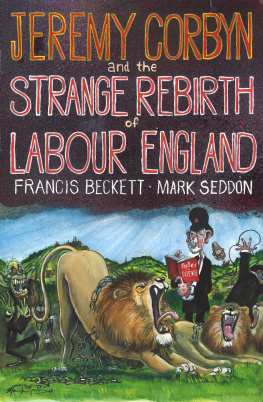
LABOUR AND THE POOR IN ENGLAND AND WALES, 18491851
VOLUME I
Publishers Note
The Plan of LABOUR AND THE POOR IN ENGLAND AND WALES, 18491851.
The letters to The Morning Chronicle from the manufacturing, mining and rural districts and the towns of Liverpool and Birmingham appear here for the first time in book form, and have been organised in eight volumes. Because the original presentation in The Morning Chronicle was limited by the layout and size of the newspaper, and because, in many instances, accounts of particular towns, industries, establishments or individuals were published in disjointed sections spread over several communications, the order is not identical with that which appeared in the press. Instead, the material has been collated, re-arranged and divided into sections so that the reports emerge as unified and continuous accounts.
THE MANUFACTURING AND THE TOWNS MINING DISTRICTS
Volume I
Introduction by J. Ginswick
Lancashire
Cheshire
Yorkshire
Volume II
Northumberland and Durham
Staffordshire
The Midlands
Volume III
South Wales
North Wales
THE TOWNS
Volume IV
Introduction by J. Ginswick
Liverpool and Birkenhead
Volume V
Birmingham
THE RURAL DISTRICTS
Volume VI
Introduction by J. Ginswick
Midlands
Northern Counties
Volume VII
South-Western Counties
Volume VIII
Eastem Counties
South-Eastern Counties
LABOUR AND THE POOR IN ENGLAND AND WALES 18491851
The Letters to The Morning Chronicle from the Correspondents in the Manufacturing and Mining Districts, the Towns of Liverpool and Birmingham, and the Rural Districts
Volume I
Lancashire, Cheshire, Yorkshire
Edited, with an Introduction by
J. GINSWICK
FRANK CASS
First published 1983 in Great Britain by
FRANK CASS AND COMPANY LIMITED
Gainsborough House, 11 Gainsborough Road,
London, E11 1RS, England
and in the United States of America by
FRANK CASS AND COMPANY LIMITED
% Biblio Distribution Centre,
81 Adams Drive, P.O. Box 327, Totowa, N.J. 07511
Transferred to Digital Printing 2004
Introduction and supplementary material
copyright 1983 J. Ginswick
British Library Cataloguing in Publication Data
Labour and the poor in England and
Wales, 18491851.
Vol. 1: Lancashire, Cheshire, Yorkshire
1. PoorEngland2. Labor and laboring classesEngland
I. Ginswick, J.II. Morning Chronicle
305.5690941HV4086
ISBN 0 7146 2907 3 (cased)
ISBN 0 7146 4038 7 (paperback)
All rights reserved. No part of this publication may be reproduced, stored in a retrieval system, or transmitted in any form, or by any means, electronic, mechanical, photocopying, recording, or otherwise, without the prior permission of Frank Cass and Company Limited.
Typeset by Input Typesetting Ltd
To H.L.B.
to whom so many owe so much
and I perhaps most
Contents
Distribution of the occupations of the people: 1851 census map
Nos. 4 and 5 are from C. Knight, ed., The Land We Live In (London, 1854). Nos. 7-13 and 15, 16 are from the Penny Magazine, Supplements for April, June, July, November and December 1843. Nos. 1-5 and 14 are by permission of the BBC Hulton Picture Library.
In October 1849 a London newspaper, the Morning Chronicle, announced to its middle-class readers that it was to undertake a survey of the condition of the labouring classes in England and Wales under the general title of Labour and the Poor. The reports of the survey were published over a period of two years and provided the mid-nineteenth-century Englishman with the most comprehensive view of the working classes that he had ever seen. Although superior to Frederick Engelss well-known study, The Condition of the Working Class in England in 1844, it is crude in comparison with the work of Charles Booth and his associates, Life and Labour of the People of London, and still more so with the study undertaken some forty years after Booth had published his findings, The New Survey of London Life and Labour. Yet neither of these later studies covered such a wide area of investigation as that undertaken by the Morning Chronicle. Indeed, despite its technical crudities and limitations, the survey must still be included among the best accounts of an emerging social class.
That a newspaper should undertake this kind of inquiry is, of course, in no way surprising. To examine afresh the social foundations, to seek out root weaknesses and suggest solutions for their reform, is not and ought not to be a policy foreign to a newspaper of quality. But the inquiry undertaken by the Morning Chronicle took a novel turn. Freely admitting that in its efforts to settle the great social problems of the day and ascertain whether any (and what) legislative measures can be adopted to improve the mental and physical condition of the poor, we have invariably been stopped, embarrassed, thrown out, or compelled to pause and turn aside by the want of trustworthy information as to the facts,1 the Morning Chronicle set about gathering the facts. In the process it created a journalistic precedent. It was the first time that a project of such dimensions had ever been undertaken by a newspaper.
It must be admitted that the response of the Morning Chronicle contained much that was fortuitous; but there were elements out of which the scheme emerged that were not as random as might at first sight appear. For one thing, the press generally had for some time been taking an increasing interest in the weaknesses of social arrangements, writing in strong terms of their social cost and advocating inquiries and reports which, if not necessarily instructing their readers, at least confirmed their prejudices. This sort of work had long been undertaken by Albany Fonblanque in The Examiner,2 but later was done more grotesquely in Punch3 and more picturesquely in The Illustrated London News.4 It was given still further prominence when Charles Dickens wrote powerfully in the Daily News on the value of Ragged Schools and against public hanging.5 With the outbreak of cholera in 1848, investigations into its incidence and consequences were instigated by all the daily newspapers, and their reports made grim reading as they drove home the unsoundness of existing sanitary arrangements.
For another, the proprietors of the Morning Chronicle were especially interested in drawing attention to the social issues of the day. They formed a group of Tory Peelites, among whom were the Duke of Newcastle, Lord Lincoln and Sidney Herbert. One of the curious features of this group is that the identity of all its members is still unknown. Historians not only differ when referring to its composition but, after mentioning one or two of the names, relegate the remainder to the etceteras.6 However, the policy governing the newspaper was clear and certain: it was firmly opposed to Palmerstons foreign policy and sought an improvement in the conditions of life among the labouring classes at home.




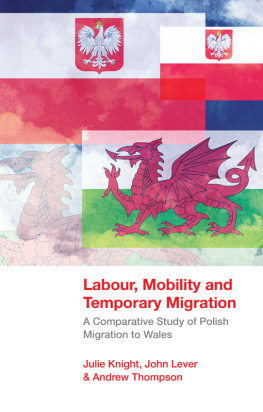
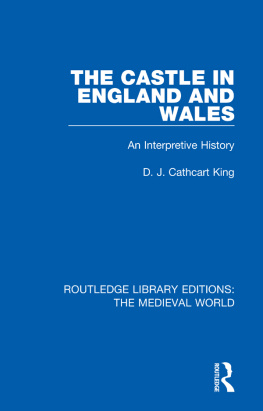
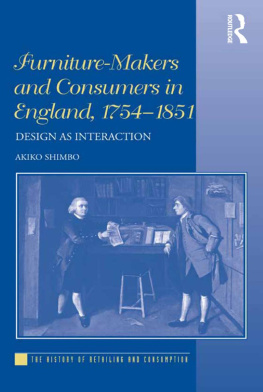
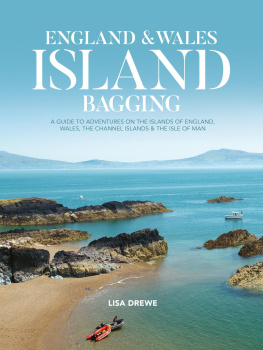

![Nick Dalton - Frommers England [2012]: & the best of Wales](/uploads/posts/book/223351/thumbs/nick-dalton-frommer-s-england-2012-the-best.jpg)

